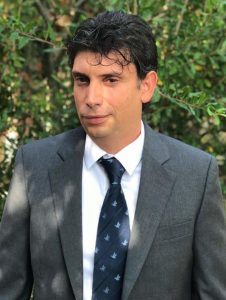
Marco Beccuti
University of Torino
Italy
EMBO Practical Course
Please see EMBL’s COVID-19 safety policy for testing and other requirements to attend this on-site course.
Single-cell sequencing is a rapidly evolving technique and is increasingly implemented in various research fields. The whole workflow contains several critical and challenging steps from cell sampling over working with minute amounts of sample to data analysis and integration. This hands-on course will cover latest cutting-edge techniques in single cell genomics (Strand-Seq), single cell multiomics (single-cell DNTR sequencing) during the wet-lab practical sessions. The computational part will address the basics of data analysing of the above mentioned techniques and also illustrate their integration. In addition, lectures and discussion-rounds with key experts and technology developers in the field will provide the participants with a general background on single-cell sequencing technologies and its applications.
This course targets young scientists entering the field of single cell analysis and wanting to learn about the benefits and limitations of the approach by performing a complete single cell analysis workflow.
• Single cell isolation with FACS
• Single-cell genomics using Strand-Seq
• Single-cell DNTR sequencing
• Single cell NGS data analysis
After finishing the course, attendees will have an overview of available methods in single cell omics and a basic overview of data analysis of single-cell NGS data sets (genomics, epigenetic and transcriptomics). Attendees will also be able to set up some methods in their lab with the knowledge of the detailed protocol and troubleshooting.
“This course provided clear guidelines and the latest approaches from researchers who have contributed throughout last years to the single-cell field. A truly enriching experience for single-cell users to get knowledgeable about current methods and their capabilities.” – Melissa Leija Salazar, University College London

University of Torino
Italy
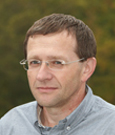
EMBL Heidelberg
Germany
EMBL Heidelberg
Germany
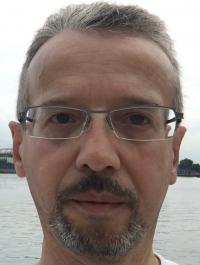
University of Turin
Italy
Karolinska Institutet
Sweden
Altos Labs
UK
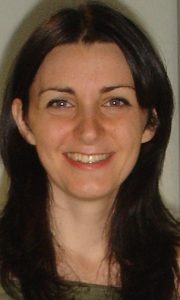
University of Torino
Italy
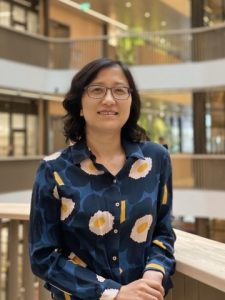
Karolinska Institute
Sweden
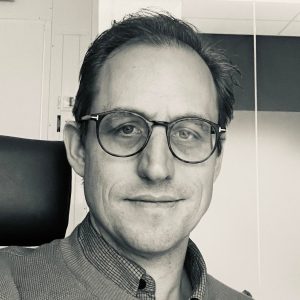
Karolinska Institute
Sweden
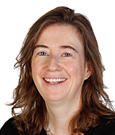
EMBL Heidelberg
Germany
Novartis Institute for Biomedical Research (NIBR)
Switzerland
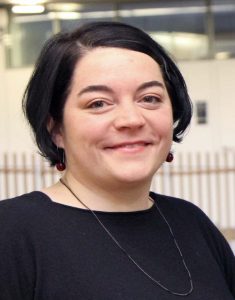
EMBL Heidelberg
Germany
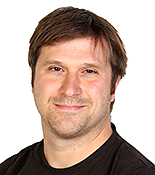
EMBL Heidelberg
Germany
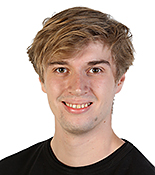
EMBL Heidelberg
Germany
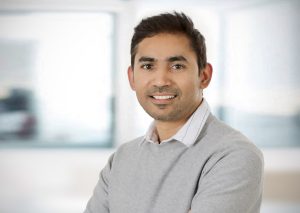
KiTZ – Hopp Children’s Cancer Center Heidelberg
Germany

Hanyang University
Republic of Korea
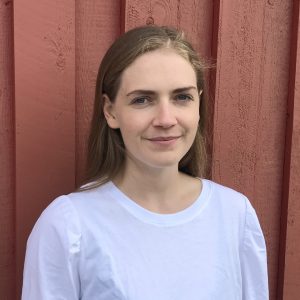
Karolinska Institute
Sweden
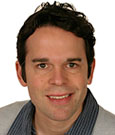
EMBL Heidelberg
Germany
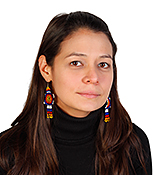
EMBL Heidelberg
Germany
EMBL Heidelberg
Germany
University of Washington
USA
Uppsala University
Sweden
Charles University
Czech Republic
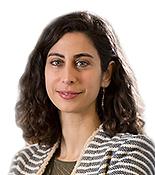
EMBL Heidelberg
Germany
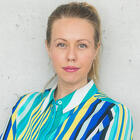
MDC Berlin
Germany
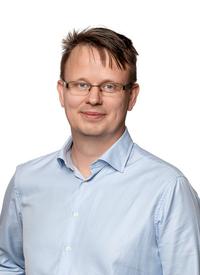
University of Gothenburg
Sweden
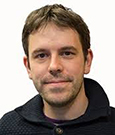
German Cancer Research Center
Germany
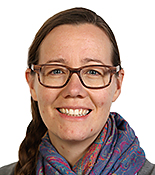
EMBL Heidelberg
Germany
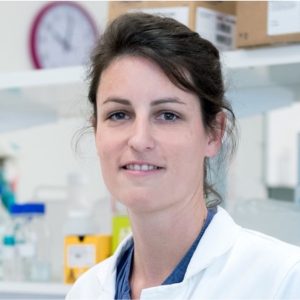
Curie Institute
France
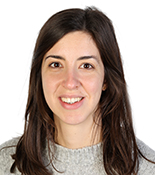
EMBL Heidelberg
Germany

Karolinska Institute
Sweden

EMBL Heidelberg
Germany

University of Gothenburg
Sweden
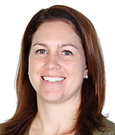
Deputy Head of Course and Conference Office
EMBL Heidelberg, Germany

Training Lab Technician
EMBL Heidelberg
Germany
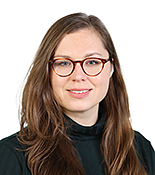
Course & Conference Officer
EMBL Heidelberg
Germany
Got something to say? Tweet it with #EMBOSCOmics
| Time (Europe/Berlin) | Session | Location |
|---|---|---|
| 10:00 – 10:15 | On-Boarding Day: Welcome and short introduction | Virtual |
| 10:15 – 10:45 | Course overview on eCampus /introduction to pre-course work | Virtual |
| 10:45 – 11:00 | Questions and Troubleshooting | Virtual |
| Time (Europe/Berlin) | Session | Location |
|---|---|---|
| 08:40 – 09:00 | Bus to EMBL | ISG Hotel |
| 09:00 – 09:30 | Registration | |
| 09:30 – 10:00 | Welcome and course overview Session Chair: Anders Ståhlberg | Flex Lab A & B |
| 10:00 – 11:00 | Networking activity – Flash talks | Flex Lab A & B |
| 11:00 – 11:30 | Coffee Break | |
| 11:30 – 12:15 | Live Q&A to pre-recorded lecture: Introduction to single cell analysis and applications, opportunities, limitations and standards in the field Anders Ståhlberg – University of Gothenburg, Sweden | Flex Lab A & B |
| 12:15 – 13:15 | Lunch | EMBL Canteen |
| 13:15 – 14:00 | Lecture: Flow Cytometry and single cell sampling Diana Ordoñez – EMBL Heidelberg, Germany | Flex Lab A & B |
| 14:00 – 15:30 | Practical work in groups and discussion: Group a+b: Single Cell sampling by FACS (Practical session 1) Group c+d: Interactive session “SC genomics and transcriptomics – Experimental design” discussion round | Training Lab B, Flex Lab A&B, FACS |
| 15:30 – 17:00 | Practical work in groups: Group a+b: DNTR-Seq: nuclear & cytosolic fractionation ( Practical session 2); Interactive session “SC genomics and transcriptomics – Experimental design” discussion round Group c+d: Single Cell sampling by FACS (Practical session 1) Concurrent coffee break | Training Lab B, Flex Lab A&B, FACS |
| 17:00 – 17:30 | Practical work in groups: Group a+b: Interactive session “SC genomics and transcriptomics – Experimental design” discussion round Group c+d: DNTR- Seq: nuclear & cytosolic fractionation (Practical session 2) Concurrent coffee break | Training Lab B, Flex Lab A&B, FACS |
| 17:30 – 18:00 | Coffee break | |
| 18:00 – 18:45 | Lecture: Single-cell multi omics – simultaneous whole genome and transcriptome analysis by DNTR-Seq (remote lecture) Martin Enge – Karolinska Institute, Sweden | Flex Lab A & B |
| 18:45 – 19:30 | Lecture: Single-cell analysis in tracking embryo development Qiaolin Deng – Karolinska Institute, Sweden | Flex Lab A & B |
| 19:30 – 21:30 | Poster session 1 (# 1 – 8) with pizza and drinks | ATC Helix B/Rooftop Lounge |
| 21:30 | Departure to Hotel | ATC Entrance |
| Time (Europe/Berlin) | Session | Location |
|---|---|---|
| 08:40 – 09:00 | Bus to EMBL | ISG Hotel |
| 09:00 – 09:15 | Overview of the day Session Chair: Anders Ståhlberg | Flex Lab A & B |
| 09:15 – 11:55 | Practical session 3: DNTR-Seq – Transcriptomics (with flexible coffee break) Introduction and Reverse transcription set-up Huaitao Cheng – Karolinska Institutet, Sweden Solrun Kolbeinsdottir – Karolinska Institutet, Sweden Mireia Osuna Lopez – EMBL Heidelberg, Germany Laura Villacorta – EMBL Heidelberg, Germany Allan Zhao – Karolinska Institutet, Sweden | Training Lab B, Flex Lab A&B, FACS |
| 11:55 – 12:55 | Lunch | EMBL Canteen |
| 12:55 – 13:25 | Live Q&A to pre-recorded lectures: Single-cell protein analysis Single-cell mass spectrometry Ashok Kumar Jayavelu – KiTZ – Hopp Children’s Cancer Center Heidelberg, Germany Johan Reimegård – Uppsala University, Sweden | Flex Lab A & B |
| 13:25 – 14:25 | Practical session 3: DNTR-Seq – Transcriptomics cDNA amplification Huaitao Cheng – Karolinska Institutet, Sweden Solrun Kolbeinsdottir – Karolinska Institutet, Sweden Mireia Osuna Lopez – EMBL Heidelberg, Germany Laura Villacorta – EMBL Heidelberg, Germany Allan Zhao – Karolinska Institutet, Sweden | Training Lab B |
| 14:25 – 15:10 | Lecture: Innovations in single cell epigenomics (remote lecture) Stephen Clark – Altos Labs, UK | Flex Lab A & B |
| 15:10 – 15:55 | Lecture: Single-Cell ATAC Seq and its Applications Eileen Furlong – EMBL Heidelberg, Germany | Flex Lab A & B |
| 15:55 – 17:55 | Practical session 3: DNTR-Seq – Transcriptomics cDNA cleanup, quantification, QC Huaitao Cheng – Karolinska Institutet, Sweden Solrun Kolbeinsdottir – Karolinska Institutet, Sweden Mireia Osuna Lopez – EMBL Heidelberg, Germany Laura Villacorta – EMBL Heidelberg, Germany Allan Zhao – Karolinska Institutet, Sweden | Training Lab B |
| 17:55 – 19:25 | Practical session 3: DNTR-Seq – Transcriptomics cDNA dilution and fragmentation and library PCR set-up Huaitao Cheng – Karolinska Institutet, Sweden Solrun Kolbeinsdottir – Karolinska Institutet, Sweden Mireia Osuna Lopez – EMBL Heidelberg, Germany Laura Villacorta – EMBL Heidelberg, Germany Allan Zhao – Karolinska Institutet, Sweden | Training Lab B |
| 19:25 – 19:35 | Practical session 3: DNTR-Seq -Transcriptomics Follow up QC results Huaitao Cheng – Karolinska Institutet, Sweden Solrun Kolbeinsdottir – Karolinska Institutet, Sweden Mireia Osuna Lopez – EMBL Heidelberg, Germany Laura Villacorta – EMBL Heidelberg, Germany Allan Zhao – Karolinska Institutet, Sweden | Training Lab B |
| 19:35 – 21:00 | Career networking dinner | EMBL Canteen |
| 21:00 | Departure to Hotel | ATC Entrance |
| Time (Europe/Berlin) | Session | Location |
|---|---|---|
| 08:40 – 09:00 | Bus to EMBL | ISG Hotel |
| 09:00 – 09:15 | Overview of the day Session Chair: Qiaolin Deng | Flex Lab A & B |
| 09:15 – 10:15 | Data Integration on Spatial Levels Oliver Stegle – German Cancer Research Centre (DKFZ)/EMBL Heidelberg, Germany | Flex Lab A & B |
| 10:15- 10:30 | Live Q&A to pre-recorded lecture: Imaging based spatial analysis in single cells Sinem Saka – EMBL Heidelberg | Flex Lab A & B |
| 10:30 – 12:30 | Practical session 4: DNTR-Seq – Genomics Tn5 digestion and PCR amplification set-up (barcoding) Huaitao Cheng – Karolinska Institutet, Sweden Solrun Kolbeinsdottir – Karolinska Institutet, Sweden Mireia Osuna Lopez – EMBL Heidelberg, Germany Laura Villacorta – EMBL Heidelberg, Germany Allan Zhao – Karolinska Institutet, Sweden | Training Lab B |
| 12:30 – 13:30 | Lunch | EMBL Canteen |
| 13:30 – 15:00 | Practical session 4: DNTR-Seq Pooling and library clean-up Huaitao Cheng – Karolinska Institutet, Sweden Solrun Kolbeinsdottir – Karolinska Institutet, Sweden Mireia Osuna Lopez – EMBL Heidelberg, Germany Laura Villacorta – EMBL Heidelberg, Germany Allan Zhao – Karolinska Institutet, Sweden | Training Lab B |
| 15:00 – 15:30 | Practical session 4: DNTR-Seq Library QC Huaitao Cheng – Karolinska Institutet, Sweden Solrun Kolbeinsdottir – Karolinska Institutet, Sweden Mireia Osuna Lopez – EMBL Heidelberg, Germany Laura Villacorta – EMBL Heidelberg, Germany Allan Zhao – Karolinska Institutet, Sweden | Training Lab B |
| 15:30 – 16:00 | Coffee break | |
| 16:00 – 17:30 | Future in sequencing technologies and Genomics Core Facility Tour Vladimir Benes – EMBL Heidelberg, Germany | Flex Lab A & B |
| 17:30 – 18:30 | Live Q&A to pre-recorded lecture: Cancer Omics and Data Science Jan Korbel – EMBL Heidelberg, Germany | Flex Lab A & B |
| 18:30 – 20:00 | Poster session 2 (#9 – 16) with German Zwiebelkuchen and drinks | ATC Helix B/Rooftop Lounge |
| 20:00 | Departure to Hotel | ATC Entrance |
| Time (Europe/Berlin) | Session | Location |
|---|---|---|
| 08:40 – 09:00 | Bus to EMBL | ISG Hotel |
| 09:00 – 09:05 | Overview of the day Session Chair: Eva Benito | Flex Lab A & B |
| 09:05 – 09:50 | Lecture: Single cell genomics using Strand-Seq and its applications Ashley Sanders – MDC Berlin, Germany | Flex Lab A & B |
| 09:50 – 10:50 | Practical session 5: Strand-seq genomics Introduction and sample prep (nuclei isolation and FACS analysis) Eva Benito Garagorri – EMBL Heidelberg, Germany Karen Grimes – Novartis Institute for Biomedical Research (NIBR), Switzerland Patrick Hasenfeld – EMBL Heidelberg, Germany Ashley Sanders – MDC Berlin, Germany Catherine Stober Brasseur – EMBL Heidelberg, Germany | Training Lab B |
| 10:50 – 11:05 | Coffee break | |
| 11:05 – 12:05 | Practical session 5: Strand-seq genomics sample prep (FACS analysis + robotics) – part 1 at FACS machine/robotics demo Eva Benito Garagorri – EMBL Heidelberg, Germany Karen Grimes – Novartis Institute for Biomedical Research (NIBR), Switzerland Patrick Hasenfeld – EMBL Heidelberg, Germany Ashley Sanders – MDC Berlin, Germany Catherine Stober Brasseur – EMBL Heidelberg, Germany | Genecore |
| 12:05 – 13:05 | Group photo and lunch break | EMBL Canteen |
| 13:05 – 14:15 | Practical session 5: Strand-seq genomics sample prep (FACS analysis): gating for StrandSeq. Working with real data with FlowJo Eva Benito Garagorri – EMBL Heidelberg, Germany Karen Grimes – Novartis Institute for Biomedical Research (NIBR), Switzerland Patrick Hasenfeld – EMBL Heidelberg, Germany Ashley Sanders – MDC Berlin, Germany Catherine Stober Brasseur – EMBL Heidelberg, Germany | Computer Training Lab |
| 14:20 – 15:35 | Practical session 5: Strand-seq genomics MNase digestion with sample clean-up with flexible coffee break Eva Benito Garagorri – EMBL Heidelberg, Germany Karen Grimes – Novartis Institute for Biomedical Research (NIBR), Switzerland Patrick Hasenfeld – EMBL Heidelberg, Germany Ashley Sanders – MDC Berlin, Germany Catherine Stober Brasseur – EMBL Heidelberg, Germany | Training Lab B |
| 15:35 – 16:50 | Practical session 5: Strand-seq genomics Library cleanup Eva Benito Garagorri – EMBL Heidelberg, Germany Karen Grimes – Novartis Institute for Biomedical Research (NIBR), Switzerland Patrick Hasenfeld – EMBL Heidelberg, Germany Ashley Sanders – MDC Berlin, Germany Catherine Stober Brasseur – EMBL Heidelberg, Germany | Training Lab B |
| 16:50 – 17:20 | Coffee break | |
| 17:20 – 19:50 | Lecture and computational practical 1: Data-preprocessing, QC, imputation, normalization Raffaele Calogero – University of Turin, Italy | Computer Training Lab |
| 19:50 | Departure to Hotel | ATC Entrance |
| 20:00 – 21:30 | Dinner | ISG Hotel |
| Time (Europe/Berlin) | Session | Location |
|---|---|---|
| 08:40 – 09:00 | Bus to EMBL | ISG Hotel |
| 09:00 – 09:05 | Overview of the day Session Chair: Raffaele Calogero | Computer Training Lab |
| 09:05 – 10:30 | Computational practical 2: Dimensionality reduction Raffaele Calogero – University of Turin, Italy Francesca Cordero – University of Turin, Italy Marco Beccuti – University of Turin, Italy Kristina Roucova – Charles University, Czech Republic | Computer Training Lab |
| 10:30 – 10:45 | Coffee break | |
| 10:45 – 12:30 | Computational practical 3: Clustering and depicting cluster-specific gene markers Raffaele Calogero – University of Turin, Italy Francesca Cordero – University of Turin, Italy Marco Beccuti – University of Turin, Italy Kristina Roucova – Charles University, Czech Republic | Computer Training Lab |
| 12:30 – 13:30 | Technology lunch with tapas | ATC Rooftop Lounge |
| 13:30 – 15:00 | Computational practical 3: Clustering and depicting cluster-specific gene markers Raffaele Calogero – University of Turin, Italy Francesca Cordero – University of Turin, Italy Marco Beccuti – University of Turin, Italy Kristina Roucova – Charles University, Czech Republic | Computer Training Lab |
| 15:00 – 15:15 | Break | |
| 15:15 – 16:00 | Lecture and demo: Multiomics single-cell data analysis – DNTR-Seq analysis Martin Enge – Karolinska Institute, Sweden | Flex Lab A & B |
| 16:00 – 18:30 | Computational practical 2: DNTR-Seq data analysis Huaitao Cheng – Karolinska Institute, Sweden Martin Enge – Karolinska Institute, Sweden Solrun Kolbeinsdottir – Karolinska Institute, Sweden | Computer Training Lab |
| 18:30 – 19:30 | Bus downtown HD; free time city centre | |
| 19:30 – 21:30 | Course dinner downtown |
| Time (Europe/Berlin) | Session | Location |
|---|---|---|
| 08:40 – 09:00 | Bus to EMBL | ISG Hotel |
| 09:00 – 09:05 | Overview of the day Session Chair: Elisabeth Zielonka | Computer Training Lab |
| 09:05 – 10:35 | Computational practical 2: DNTR-Seq data analysis Huaitao Cheng – Karolinska Institute, Sweden Martin Enge – Karolinska Institute, Sweden Solrun Kolbeinsdottir – Karolinska Institute, Sweden | Computer Training Lab |
| 10:35 – 11:20 | Application Lecture: Single-cell high throughput Chip-Seq analysis in breast cancer tumors (remote lecture) Céline Vallot – Curie Institute France, France | Flex Lab A & B |
| 11:20 – 11:50 | Coffee break | |
| 11:50 – 12:45 | Computational practicals 3: Single-cell genomics data analysis Data visualisation, library selection, ASHLEYS Karen Grimes – EMBL Heidelberg, Germany Hyobin Jeong – Hanyang Universtiy, Republic of Korea Ashley Sanders – MDC Berlin, Germany Thomas Weber –EMBL Heidelberg, Germany Wolfram Hoeps – EMBL Heidelberg, Germany | Computer Training Lab |
| 12:45 – 13:45 | Lunch break | EMBL Canteen |
| 13:45 – 15:50 | Computational practicals 3: Computational practical: Single-cell genomics data analysis (Strand-Seq) downstream analysis: scTRIP, breakpointR Karen Grimes – EMBL Heidelberg, Germany Hyobin Jeong – Hanyang Universtiy, Republic of Korea Ashley Sanders – MDC Berlin, Germany Thomas Weber –EMBL Heidelberg, Germany Wolfram Hoeps – EMBL Heidelberg, Germany | Computer Training Lab |
| 15:50 – 16:05 | Coffee break | |
| 16:05 – 17:35 | Computational practicals 3 continued: Single-cell genomics data analysis (Strand-Seq) more in-depth analysis: StrandPhaseR Karen Grimes – EMBL Heidelberg, Germany Hyobin Jeong – Hanyang Universtiy, Republic of Korea Ashley Sanders – MDC Berlin, Germany Thomas Weber – EMBL Heidelberg, Germany Wolfram Hoeps – EMBL Heidelberg, Germany | Computer Training Lab |
| 17:35- 17:50 | Break | |
| 17:50 – 18:35 | Lecture (remote lecture) with Q & A David Porubsky – University of Washington, USA | Flex Lab A & B |
| 18:35 – 19:05 | Wrap up and feedback | Flex Lab A & B |
| 19:05 | Departure to Hotel/ train station | |
| 19:15 – 20:45 | Dinner | ISG Hotel |
The course is limited to 16 participants. For selection purposes, please note that your application will not be considered without a letter of motivation.
Registration fees include admission, course materials, COVID-19 safety measures, meals and coffee breaks.
This EMBO course includes accommodation and transportation to and from the ISG Hotel to the venue.
| Academia | €500 |
| PhD Student | €500 |
| Industry | €1000 |
The registration fee should be paid only after acceptance to the course. The results will be announced approximately 2-3 weeks after the application deadline.
After you have logged in and successfully registered, you will receive an email asking you to submit your motivation letter. Click on the link provided and enter your motivation letter in the text box provided. Alternatively you can submit your motivation letter by clicking on the link on the confirmation page directly after registering.
Instructions
Please note:
For more detailed information, follow the instructions provided in our video on how to submit a course motivation letter.
For further information about registration and motivation letter submission please refer to the FAQ page.
Limited financial assistance is provided by the EMBL Advanced Training Centre Corporate Partnership Programme and EMBO in the form of both registration fee waivers and travel grants. Availability is limited to participants attending on-site events in Heidelberg and will be indicated during the abstract or motivation letter submission process.
Your place in the meeting is only confirmed by paying the registration fee, which is mandatory even when receiving a fee waiver.
The fee waiver will cover the registration sum that you have paid to attend the course or conference.
The travel grant will cover the cost of travel (airfare, train, bus, taxi, accommodation, visa, and/or registration fees*) and is provided up to specified caps which are normally as follows:
– up to €400 for participants travelling to an EMBL Course, EMBL Conference or EMBO|EMBL Symposium from within Europe.
– up to €1000 for participants travelling to an EMBL Course, EMBL Conference or EMBO|EMBL Symposium from outside Europe.
– up to €500 for any participant travelling to an EMBO Practical Course or EMBO Workshop.
– up to €1000 for any participant working in Chile, India, Singapore or Taiwan travelling to an EMBO Practical Course or EMBO Workshop.
*Registration fees are only covered for EMBO Practical Courses or EMBO Workshops
The organisers may reduce the grant cap to accommodate more participants. Recipients will be notified of their travel cap amount when they are informed of the outcome of their application. Original receipts must be provided with your signature for all costs incurred within two months of completion of travel. Scanned copies cannot be accepted.
For EMBO Practical Course or EMBO Workshop participants with children, there is the possibility to apply for a childcare grant to offset child care costs incurred by participants or speakers when participating at a course or conference. Eligible costs include fees for a baby-sitter or child-care facility, travel costs for a care giver, or travel costs for taking the child to the meeting etc. Please note that priority will be given to early stage researchers. A maximum amount of 500 EUR can be awarded per participant applying for an EMBO Childcare Grant. In order to apply for this grant for EMBO Workshops, you must be registered by the abstract submission deadline.
Applies to selected courses only. Availability will be indicated during the abstract or motivation letter submission process.
This grant covers costs related to your attendance to the course (registration, travel and accommodation costs). The grant is restricted to PhD students and postdocs who conduct basic biomedical research.
Whether you are eligible to apply for a travel grant, depends on when you received your university entrance qualification (e.g. Abitur, A-Levels, High School Diploma, Final State Examination):
– for PhD and MD students, as well as graduates, the university entrance qualification must not have been obtained more than 11 years ago at the time of the envisaged course
– for postdocs, the university entrance qualification must not have been obtained more than 13 years ago at the time of the envisaged course
You may apply for financial assistance when submitting your motivation letter for courses, and abstract for conferences. In your application you will be asked to answer questions regarding why your lab cannot fund your attendance and how your attendance will make a difference to your career. Application for financial support will not affect the outcome of your registration application.
For the Boehringer Ingelheim Fonds Travel Grant, there is a pre-application question during the motivation letter submission process, and if selected you will be requested to complete a standard form and documentation consisting of your travel expense estimation.
The scientific organisers will select the recipients of all financial assistance during the motivation letter or abstract selection process. Results will be announced approximately 6-8 weeks before the event start date, however for some events this may be delayed. Selection results do not impact your admission to the meeting. Selection is based on your current work or study location, the reasons for needing financial support and the impact this event will have on your career.
Costs will be reimbursed after the meeting only once a reimbursement form and original receipts (from travel costs) have been received.
View our list of external funding opportunities and information on attending a conference as an event reporter.
For further information about financial assistance please refer to the FAQ page.
Accommodation has been pre-booked for you at the ISG Hotel for the default dates of Saturday 12 November to Saturday 19 November 2022 (7 nights). Please note that the course registration fee includes coverage of accommodation costs in twin rooms, including breakfasts, for your stay at the ISG. If you prefer to stay in a single room, please let us know and please note that you will be required to pay an additional cost of 21 EUR per night. This should be paid by you directly to the ISG during your stay. Any additional nights need to be booked and paid for by you. We recommend that all course participants stay at the ISG Hotel which is the dedicated hotel for the course.
Shuttle buses will go from the ISG Hotel to EMBL and back, mornings and evenings. A bus schedule and location of the bus stops will be made available prior to the meeting.
Address: EMBL Heidelberg, Meyerhofstraße 1, 69117 Heidelberg, Germany
For further information on getting to EMBL Heidelberg visit our Travel Information page.
For enquiries about accommodation and local transportation please refer to the FAQ page.
The EMBL eCampus learning platform will be used to collaborate, communicate and network with all of the course participants. All participants will receive information on how to join shortly before the course. We recommend using Chrome, Safari or Mozilla Firefox browsers for eCampus.
Please find additional information including FAQs, terms and conditions, COVID-19 safety policy and travelling to EMBL on our Information for Participants page.
COVID-19 information for on-site events at EMBL Heidelberg can be found in our COVID-19 FAQs.
Sponsorship opportunities
We offer a variety of event sponsoring possibilities, with the flexibility to select a set sponsorship package or combine individual sponsorship options to suit your event budget. Discounts are available for companies sponsoring multiple events at EMBL Heidelberg. View other conferences, or contact sponsorship@embl.de for further information.
If you are interested in becoming a media partner of this event, please visit our media partnerships webpage.

Date: 13 - 18 Nov 2022
Location: EMBL Heidelberg
Venue: EMBL Advanced Training Centre
Deadline(s):
Application: Closed
Organisers:
Contact: Aline Schnieder